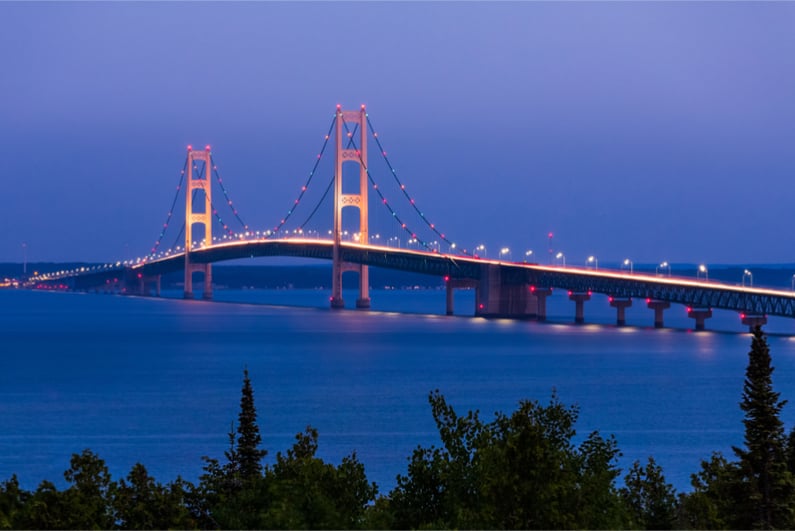The chances of Michigan legalizing both sports betting and online gambling hinge on the ability of the state’s legislature to prevent a tribal blockade against the expansion.
A prominent bill in Michigan seeking to legalize sports betting and online gambling faces an uncertain future after several of the state’s casino-operating tribal nations work to alter a kill clause contained in the bill’s provisions that would go beyond the state’s own legislative reach.
The regulatory bill’s primary sponsor, Michigan State Representative Brandt Iden, said that a “poison pill” had been inserted into the working draft bill in order to gain the support of three large Detroit-area casinos who want to be able to continue offering online gambling and sports betting in the event a change in federal law constrains Michigan tribes from offering online or off-reservation services.
Instead, the Michigan tribal nations continue to push for a different sort of kill clause, one that would shut down all of Michigan’s future online gambling and sports betting – tribal or not – in the unlikely event such a federal exclusion might occur.
Section 16 battle lines
The poison pill is the 16th and final section of Rep. Iden’s H 4926 bill, and it was inserted solely to protect the future interests of the three non-tribal casinos. MGM Grand Detroit, Greektown Casino and MotorCity Casino all requested the Section 16 provision to protect their own infrastructure investment in case such a federal-tribal lockout occurred.
The tribal nations, though, have other thoughts. They’ve been either neutral or opposed to Iden’s current and previous measures, and have demanded protection for their own possible investment and market status in Michigan. As Rep. Iden told a US-based affiliate site: “What tribes want is that if the federal government says they are not allowed, the commercial casinos cease from online gaming as well.”
The chances that the US federal government would exclude tribes across the country from participating in sports betting or online gambling are vanishingly slim, even if the sovereignty issue embedded within the tribes’ off-reservation reach will someday be tested in court. That sovereignty issue may be part of the tribes’ demands, though Rep. Iden has declined to offer specifics regarding the negotiations’ stumbling point.
Rep. Iden only discussed the problem in generalities, saying: “The reality of it is, there isn’t a lot I can put in there to ease that concern. There isn’t a statute I can put in place to resolve your problem if you’re a sovereign nation that answers to the federal government.” Indeed, American tribal nations deal with individual states on gambling matters only through a compact system engineered under the US’s federal IGRA (Indian Gaming Regulatory Act), which created the tribal gaming market in the 1980s.
Echoes of California problems
One might question why the poison-pill provision was introduced into Rep. Iden’s measure at all, since it deals with a highly unlikely scenario. The provision’s presence reflects the power of Michigan’s tribal-gaming lobby, while also protecting the state’s own gaming rights in relation to any unlikely federal action.
The tribal resistance also draws some comparisons to the unfortunate, decade-long stalemate in California, where online-gambling legalization efforts have been blocked by a small number of politically powerful tribal nations seeking to protect their own land-based tribal casinos. Those tribal nations, led by the Pechanga and Agua Caliente casinos, worked to protect the status quo by demonizing their pro-legalization opponents. At first, the hardline group opposed a pro-online coalition affiliated with PokerStars on “bad actor” grounds. After the Stars group collapsed, the tribal group began targeting several of California’s licensed card rooms over relatively minor gaming violations as a reason to block online legalization efforts.
The situation is somewhat different in Michigan, where the key land-based slots traffic comes from both tribal and non-tribal operations. Rep. Iden’s addition of legalized sports betting to the bill also adds a plum that the tribes might not want to pass by, given expected consumer demand.
Even if an agreement can be hammered out, however, it’s still a long climb in Michigan to full legalization. Should an amended version of Rep. Iden’s bill pass Michigan’s House, a matching bill would need Senate approval, plus a signature from Michigan Governor Rick Snyder. Such action would likely carry over into 2019, if not later.



